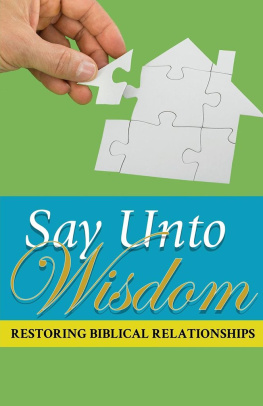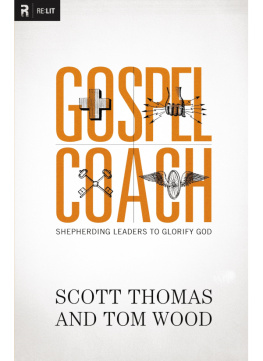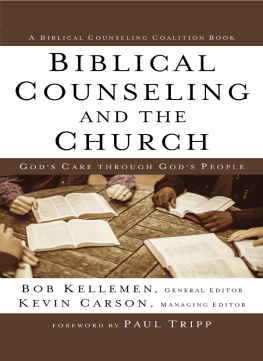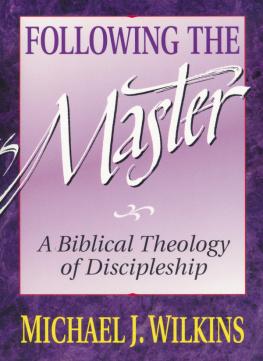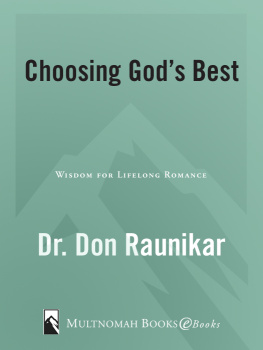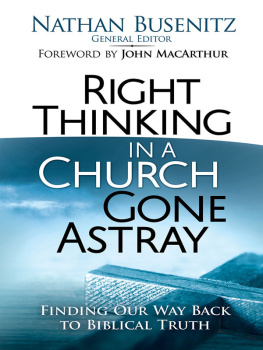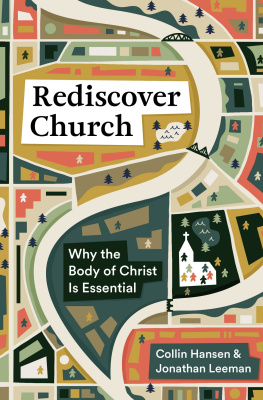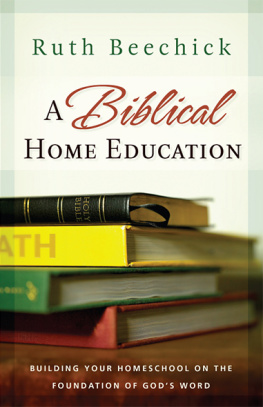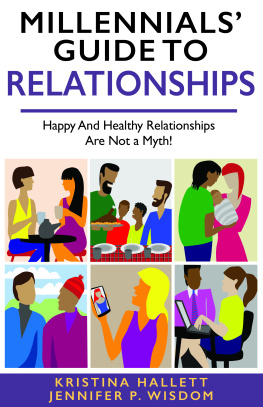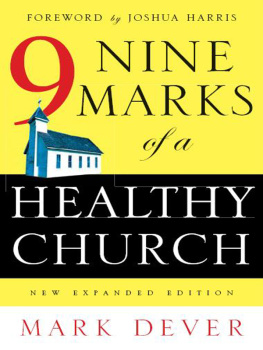Say Unto Wisdom
RESTORING BIBLICAL RELATIONSHIPS
Joseph Stephen
Faithful Generations
Copyright 2015 by Joseph Stephen. All rights reserved.
No part of this book may be reproduced without written permission from the publisher or copyright holder, except in the case of brief quotations embodied in critical articles and reviews. No part of this book may be transmitted in any form or by any meanselectronic, mechanical, photocopy, recording, or otherwithout prior written permission from the publisher or copyright holder.
All Scriptures are taken from The King James Version of the Holy Bible unless otherwise stated
ISBN-13: 978-0-9944042-1-3
ISBN-13: 978-0-9944042-2-0 (e-book)
Faithful Generations
South Australia, Australia
www.faithfulgenerations.com
Other books By Joseph Stephen include:
The Sufficiency Of Scripture: The Key to Revival
More Than Meets The Eye: Vision In Verse
If A Picture Paints A Thousand Words: Give Your Child The Right Foundation For A Biblical Worldview
The Perfect Programmer: A Christian Programming Curriculum
Blindness, Braille And The Bible: A Christian Home Education Curriculum
Contents
Dedication
To my family my dearest and cherished wife, and eight living children - Gods most precious earthly gifts. In my sinful frailty, I have attempted to find out what I never knew, in order to teach you what I hope youll never forget. My children, if the Lord so tarries, and grants you the blessings of marriage and children, may you teach your family these truths. May you enjoy in a deeper and richer way, the things we have only begun to learn.
Acknowledgements
Researching, writing, editing, formatting and proofreading a book is a huge task. I would like to thank the following people for their help in bringing this book to fruition:
Dr Dallas Clarnette
Dr Lance A. Box
Mr Brent Grey
Mr Michael Woolley
Mr David DLima
Mr Jean Engela
Mr Theophilus Engela
Mr Mervyn Harris
my cherished wife Florence
my eight precious children
My Lord and Saviour, Jesus Christ
Foreword
Whilst I was working amongst the Warlpiri of Central Northern Territory, a senior elder spoke to me of the heartbreak that he and other elders felt because school teachers had taught the children of the community to address older people by their first name. The Warlpiri language, paralleling many other languages around the world, has a set of respect terms that need to be used when addressing others. These terms are terms of relationship, but also terms of deference. With the use of the respect language, there was an attitude and set of protocols that enabled appropriate interchange amongst the Warlpiri people. However, since the influence of Western schooling has been entrenched in the various Warlpiri communities, respect has broken down at all levels, and the old people lament.
This lamentation is felt by many of us who have been afflicted by the levelling forces of egalitarianism in Western culture. I have been a school teacher for 27 years, and I remember the days when students would address me as Mr or Sir. I could get on and teach when respect had been established. In recent years, it became progressively more and more difficult to teach in a classroom (even classrooms of Christian schools) because there was no longer a culture of respect and deference.
There is an old adage that says, You get what you preach. And again, it has been said, The world follows the church. In many of the churches in the Western world, the fear of God has been lost, and with the loss of the fear of God, respectful relationships within the Church have also been lost. The world has taken its cue, and filled the vacuum with egalitarianism, feminism, childrens rights, and so forth.
I commend Joseph Stephen in his efforts to reengage the church in a discussion of how we should live life with one another in a respectful way; a way that reflects a fear of God, a love for His Kingdom and His glory, and a trembling at His Word.
May God bless all those who seek to be doers of His Word, and who prayerfully apply the principles in this short book to the relationships that exist in the broader Christian community. And as we learn to love one another again, as Christ taught us to do, may the world come to know that Jesus is the Christ, the Son of the Living God.
- Dr Lance A. Box Jangala, PhD (Education)
CHAPTER 1
Introduction
I n our current cultural environment, relationships have become incredibly shallow and impersonal. A room can be full of people texting others elsewhere, rather than relating in person to the people they are sitting next to. Our friendships are transient waves of likes and dislikes on Facebook. The depth of our words are a twitter tweet to inform everyone in cyberspace what we had for breakfast. We have fallen in love with technology to the point where Japan touts the first hotel staffed by robots. Relationships have become fleeting, androgynous, egalitarian interactions via a touch screen. Gone is the personal touch of humanity, made in the image of a personal God (Gen. 1:26; Mat. 8:15; Mark 1:41; Luke 22:51; Heb. 4:15; 1 John 1:1. This is because though we all desire relationships, our sinful nature without Gods guidance destroys the very things we so deeply desire. How should we relate to each other?
I am no relationship expert. I came from a broken family. I never knew my biological father and yearn, like so many others, to know the love of my father. My mother married thrice and the incredible heartache of these and her other broken relationships have scarred me for life, not to mention deprived my children of a set of biological grandparents. I am not the perfect father myself, neither am I the perfect husband or son. Growing up, I never learned much about how to apply Biblical wisdom to any relationships until out of desperation, I sought the Lord as to how to be a father, when I had my own children.
Though I have commenced a journey of learning, this still does not make me an expert of any kind. What I share in this book is the wisdom of one who is an expert, the wisdom of the God who created relationships and who has given us the blueprint for their success. Knowing about such wisdom is of course half the battle. Knowing where we are going and what we are aiming for gives us the goals to work toward as we seek to raise our family or contribute to a local body of believers, which we shall see, is to glean its relational principles from the biological family. While reading the apostle Pauls letter to Timothy, the following verse caught my attention.
Rebuke not an elder, but intreat him as a father; and the younger men as brethren; The elder women as mothers; the younger as sisters, with all purity. (1 Tim. 5:1-2.)
he appeals to the foundation of family relationships to instruct the body of Christ in appropriate relationships within the assembly, the household of faith (Gal. 6:10).
In todays androgynous and egalitarian culture, these verses seem foreign to us. How should we entreat a father or mother? How should we treat a sister or brother? How does a father rule his own house well? What does it mean to have children in subjection? If all were identical in authority and role, the apostle Paul could have simply said, treat everyone with courtesy. Perhaps he could have restated the golden rule of Matthew 7:12, to do to others as we would have them do to us. Instead, the apostle draws our attention to our biological family in order to instruct us concerning our spiritual family. Thus we must have a Biblical understanding of Gods design for the biological family in order to come to a correct understanding of relationships within the family of God.
Today, in Western nations at least, we have become accustomed to addressing all adults as equals regardless of age differences. In todays modern, egalitarian culture, adults think they do children a favour by allowing them to address them by their first name, supposing that they make themselves more approachable. In past generations, children would address adults using a respectful title which recognized the seniority of the adult. Once upon a time men would be discerning about what was appropriate to discuss in the presence of a lady. Their tone too would differ when talking to a lady compared to talking to another man. This was, no doubt, due to Biblical principles understood by former generations which have been forgotten. Today, men think they do women a service by sending them to the frontline of our physical and spiritual battles. Clearly the apostle Paul teaches us that there are distinctions to be made depending upon gender, age and role. These are not merely social or cultural conventions, but God ordained delineations designed to teach us to recognize and honour authority and to show appropriate respect.
Next page
